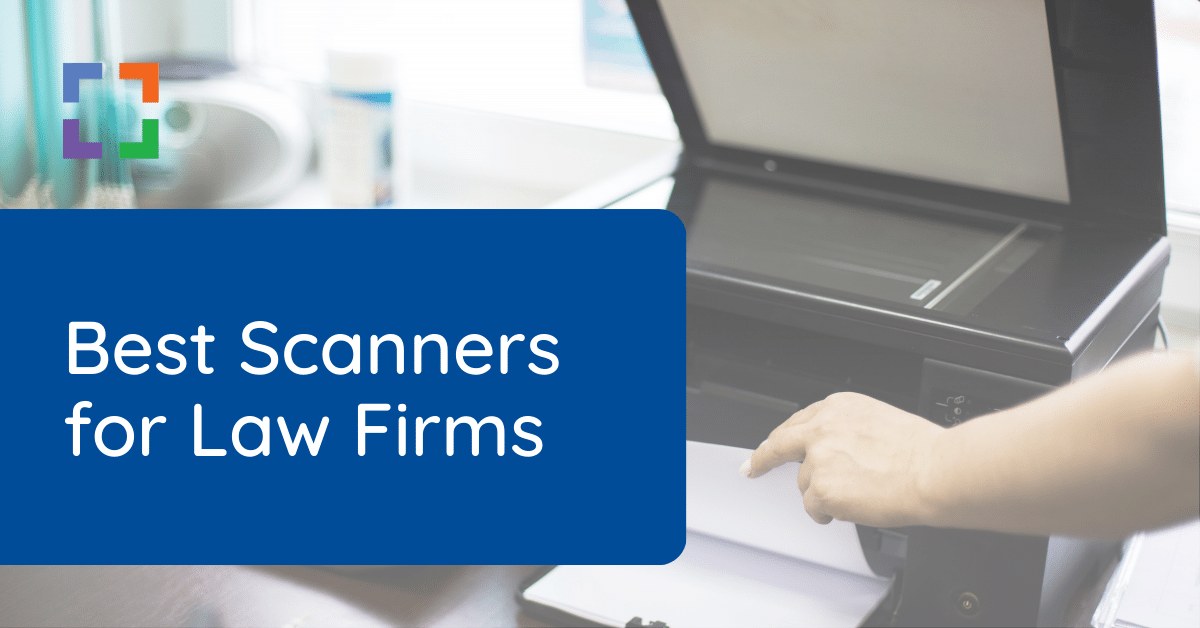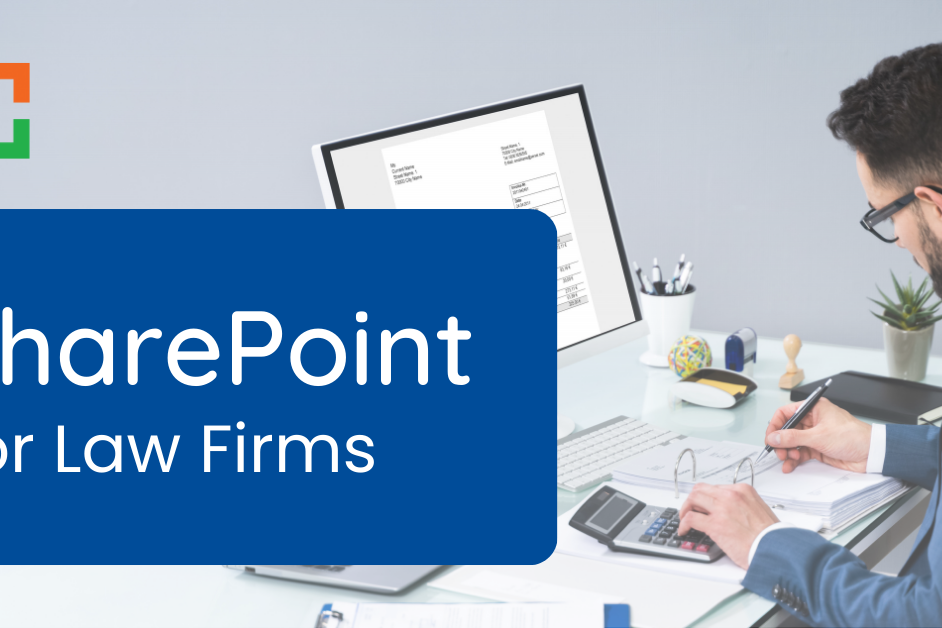Best Cloud Storage for Law Firms in 2024
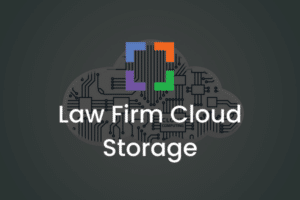 Technology has changed significantly in the past year, and legal technology is no exception.
Technology has changed significantly in the past year, and legal technology is no exception.
What is the best cloud storage platform for law firms in 2024? We explore today’s options in this roundup of cloud storage platforms used by law firms.
Want to jump straight to the list of law firm cloud software? Click here!
In This Article
- Introduction to Law Firm Cloud Storage
- Classes of Law Firm Cloud Storage
- Law Firm Cloud Storage Features
- Data Security & Compliance – A Guide for Law Firms
- The List: The Best Cloud Storage for Law Firms
- Challenges With Cloud Storage in a Law Firm
- Document Management Systems for Law Firms
- Frequently Asked Questions - Best Cloud Storage for Law Firms
Introduction to Law Firm Cloud Storage
Law firms across the country are moving away from on-premise file servers to cloud-based storage and document management systems.
Even before the most recent pandemic, law firms have been eying the cloud as an alternative to the costs, headaches and inflexibility of on-premise file servers. Today, the modern law firm needs:
- Access to client, matter and firm documents (all of them) from anywhere.
- Access to documents without the burden of clunky VPN connections.
- Enhanced data security and compliance measures.
- Simplicity and ease-of-use, to encourage adoption across the entire firm.
Naturally, this leads many law offices to search for the best cloud storage for law firms. And today, there is no shortage of cloud-based storage and file systems competing for your dollar.
But which is the overall best cloud storage for law firms?
- Which has the functionality your firm needs?
- Which is the most secure?
- Which is the easiest to use?
- What’s the difference between Document Management and Cloud Storage?
Related – Law Firm Software: A guide, including cloud storage, practice management, document management, accounting software, and more.
In this article, we’ll answer these questions and more, and cover the best cloud storage solutions for law firms.
Let’s get started.

“LexWorkplace is very fast, and documents are easily accessible. Working remotely is seamless.”
Nathan Cobb
Law Offices of Nathan Cobb
See Why Lawyers Love LexWorkplace
Get Organized. Work Anywhere. LexWorkplace is modern Document & Email Management, born in the cloud and built for law firms.
Classes of Law Firm Cloud Storage
Software or a service that can store your documents in the cloud is a pretty broad category.
What’s more, it’s easy to get lost in the terminology, buzzwords, technical nuance, and (sometimes) hyperbole. With the unique needs of the legal profession as our guide, it’s useful to organize the different cloud storage options into two broad categories, or classes, of cloud storage for law firms.
Basic Cloud Storage
Let’s start with the simplest class of law firm cloud storage (and the one you’re probably already familiar with), basic cloud storage.
Basic cloud storage is just that: Simple, lightweight storage for your firm’s documents and data. Basic, not in the pejorative sense, but in the sense that the platform is easy to use and doesn’t try to do too much.
Basic cloud storage is loosely the cloud equivalent of your law firm’s S: drive, or on-premise file system. With basic cloud storage, you can create a set of firm-wide, top-level folders (for instance: a folder per client, per matter, and so forth), and store and organize documents within.
Your firm’s cloud file system looks and works much like any folder structure within Windows Explorer, only it’s accessible to your entire team, and from anywhere (within a web browser or via a desktop sync application.)
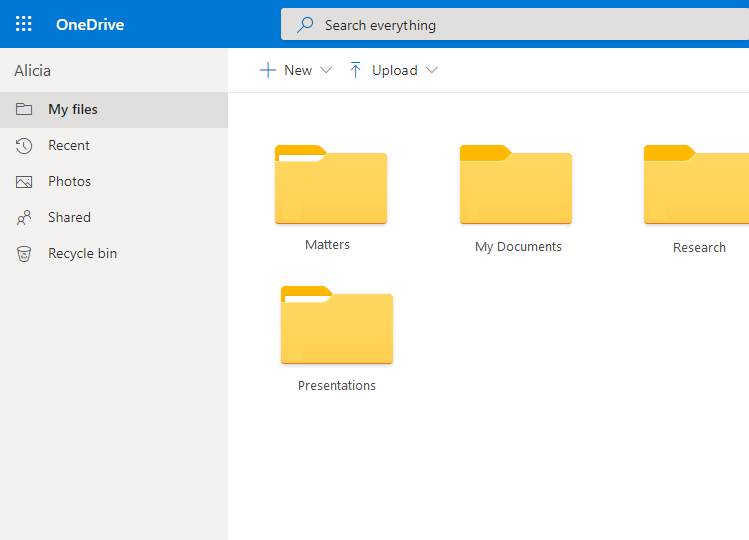
Basic cloud storage solutions include services you’ve probably already heard of: Microsoft OneDrive, Google Drive, DropBox, and Box.com.
Many cloud-based Law Practice Management solutions also provide in-line cloud storage (something like a “built-in OneDrive” within the software.)
Pros:
- Quick to Setup and Implement
- Easy to Use
- Low-Cost
Cons:
- Limited DMS Features
- Limited Search Capabilities
- Common Sync Problems*
- No Email Management
*Sync Problems:
Basic cloud storage platforms can be a good (or great) fit for smaller teams (law firms of up to 5 people). However, a fundamental problem with all of these services is they attempt to synchronize to each of your user’s computers. This works okay for a couple of people, but when you get to more than a few users, the synchronization becomes inefficient and inconsistent, leading to inconsistencies (version conflicts, etc.) in data from one person’s computer to another.
Related – Managed Cloud Services for Law Firms: If you choose basic cloud storage, ensure that you have help configuring and managing your tech.
Document Management Software
If basic cloud storage is simply “a place online to make folders and put stuff,” a Document Management System (DMS) is a more comprehensive, robust system to store and manage documents in the cloud.
Document Management Systems have been around a long time. Years ago, a law firm might acquire document management software and install it on the firm’s on-premise server. Today, most document management systems are cloud-based, which means they provide both the storage of your documents, as well as a rich feature set to manage those documents.
Beyond simple folders-and-files, a cloud-based law firm Document Management System will often provide:
- Client/Matter-Centric Org
- Automatic, Integrated OCR
- Full-Text Search (docs & email)
- Microsoft Office Integration
- Document Version Management
- Document Tagging & Profiling
- Document Check-Out / Check-In
- Permissions & Access Controls
- Pin Favorite & Recent Documents
- Unique ID Per-Document
- One-Click Open / One-Click-Save
- Integrated Email Management

Oftentimes law firms start with basic cloud storage, and as their team grows, find the capabilities of basic cloud options lacking one or two key features that the firm needs (such as full-text search, or document tagging).
The same also happens for firms that implement cloud-based Law Practice Management (that may advertise “Document Management” as a feature), and soon find the document storage and management capabilities therein are simply too limited.
Example of a Cloud-based Document Management System (LexWorkplace):
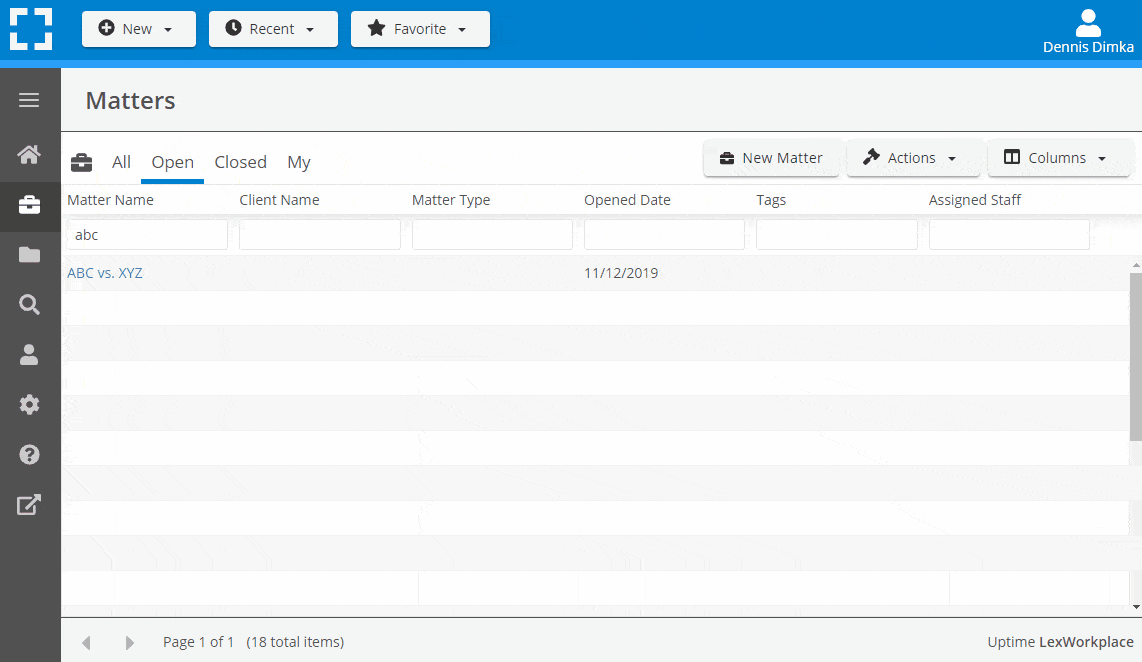
Pros:
- Robust Feature Set
- Full-Text Search (docs & email)
- Centralized Cloud Storage
- No Synchronization Issues
- Highly Scalable
Cons:
- More Substantial Investment *
- Data Migration/Conversion Required
*Investment:
More functionality requires more investment. By way of example: the LexWorkplace document management base package is $395 / month, which includes up to 5 users and 1TB of storage.
Integrating Cloud Technology into Law Firm Operations
Integrating cloud technology into your law firm’s operations is crucial. Cloud storage is more than just a space for storing files; it’s a tool that revolutionizes how law firms function, communicate, and serve their clients. Here are the benefits.
- Collaboration and Workflow Efficiency: Cloud storage allows attorneys, paralegals, and support staff to access and work on documents simultaneously, regardless of their location. This real-time collaboration streamlines workflows, reduces delays in document processing, and keeps all team members on the same page. All of this leads to a more dynamic and efficient work environment.
- Remote Access and Flexibility: Cloud storage increases flexibility by providing attorneys and staff the ability to access critical files and resources from anywhere, at any time. This flexibility is especially valuable in a post-pandemic world where remote work is more common. Whether in court, at home, or in transit, the cloud lets you access all necessary documents and data in just a few clicks.
- Client Engagement and Communication: Utilizing cloud storage can improve client engagement. Secure client portals, facilitated by cloud technologies, offer a platform for lawyers and clients to share documents and communicate efficiently. This direct line of communication not only speeds up case progress but also fosters transparency and trust between the lawyer and the client.
- Cost Efficiency and Scalability: Cloud solutions typically offer more cost-effective and scalable alternatives to traditional on-premise data storage. Law firms can adjust their storage needs based on current caseloads without the upfront costs of physical hardware. This scalability ensures that firms pay only for what they need, with the flexibility to expand as the firm grows or demands increase.
- Integration with Other Legal Technologies: One of the most significant benefits of cloud storage is its ability to integrate seamlessly with other legal software tools. From case management systems to billing and time-tracking software, cloud storage acts as a central hub, bringing various aspects of law practice management together. This integration streamlines operations, reducing the time spent toggling between different applications and increasing overall efficiency.
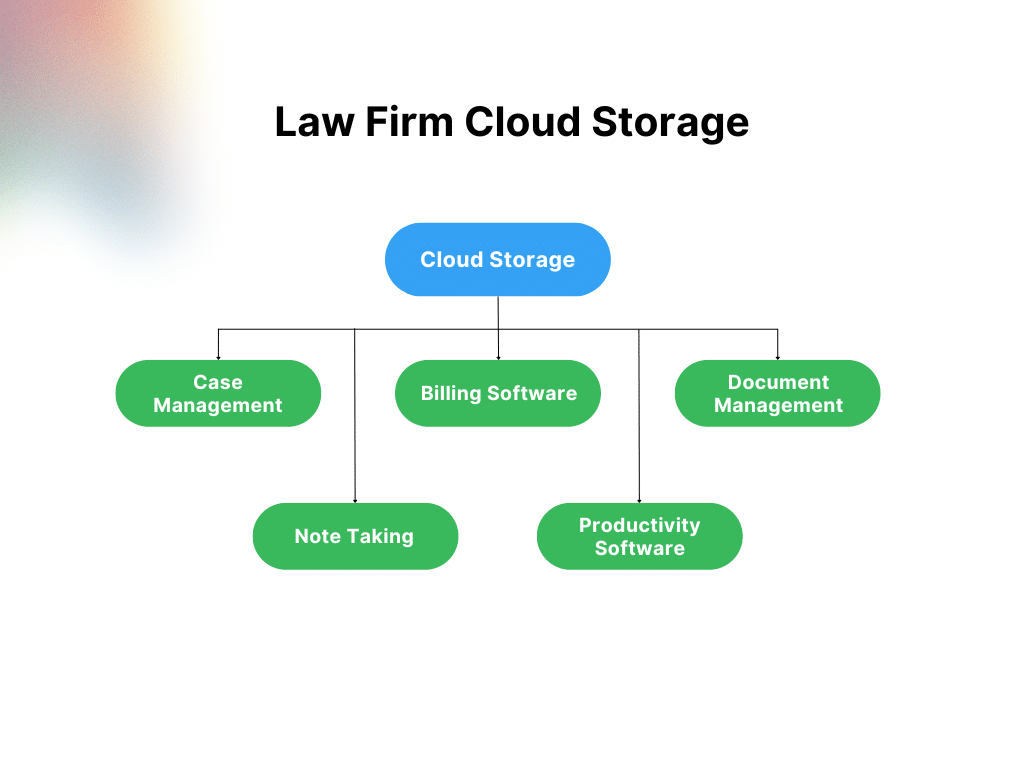
Law Firm Cloud Storage Features
We recommend that you start your search for the right law firm cloud storage platform by making an inventory of the specific capabilities and features that you require. For this, we recommend that you confer with each area within your law firm: from attorneys to support staff.
Use our checklist below as a guide, and identify which of these are must-have’s for your firm.
- Web-based Access to Documents
- Windows and Mac OS Support
- Organize with Folders / Subfolders
- Organize by Client / Matter
- Full-Text Search (docs & email)
- Microsoft Office Integration
- Complete Data Encryption
- Multi-Factor Authentication (MFA)
- Geographic Data Redundancy
- Document Version Management
- Document Tagging & Profiling
- Document Check-Out / Check-In
- Permissions & Access Controls
- Pin Favorite & Recent Documents
- Unique ID Per-Document
- One-Click Open / One-Click-Save
- Integrated Email Management
Data Security & Compliance – A Guide for Law Firms
Regardless of the specific features your law firm needs, one thing that is universally important is data security and compliance.
Any given cloud storage service, ranging from simple cloud storage to robust cloud-based Document Management software, should have specific data security and compliance measures in place. As a law firm, you’re almost certain to be storing sensitive information. And depending on your practice area, you may hold data subject to regulations such as HIPAA, Sarbanes Oxley or PCI Compliance
- Data Encryption In-Transit
- Data Encryption At-Rest
- Multi-Factor Authentication
- Geographic Data Redundancy

Multi-Factor Authentication
MFA (Multi-Factor Authentication) is a vital piece of the security puzzle. Passwords are often compromised, so a username/password alone is not enough to keep your data secure.
MFA provides an important additional layer of security by requiring a second means of authentication (usually your smart phone) prior to accessing your data.
 With your must-have features itemized and your security requirements defined, you’re ready to evaluate the top law firm cloud storage solutions.
With your must-have features itemized and your security requirements defined, you’re ready to evaluate the top law firm cloud storage solutions.
Related: Cloud Storage and Paperless Law Firms
One of the other benefits of utilizing Cloud Storage is that it brings you one step closer to achieving a Paperless Law Firm.
Hardcopies are tough to manage because it’s easy to misplace documents, feel disorganized, or spend too much time looking for what you need. Using Cloud Storage (or even a DMS) will allow you to store, organize, and find what you’re looking for much easier.
Related – Scanners for Law Firms
Explore your options for scanners based on the needs of law firms and your firm particularly.
The Best Cloud Storage for Law Firms in 2024

OneDrive
Company: Microsoft
Class: Basic Cloud Storage
Overview
OneDrive is Microsoft’s own cloud storage service, available as part of an Office 365 subscription or as a stand-alone service. OneDrive provides simple, easy-to-use cloud storage, and aims to replace a local file server or simply be used for personal storage. OneDrive is built right into Windows, making it an easy and obvious go-to for simple storage needs. OneDrive, however, lacks functionality required by many law firms including matter-centricity, email management, and document tagging and profiling.
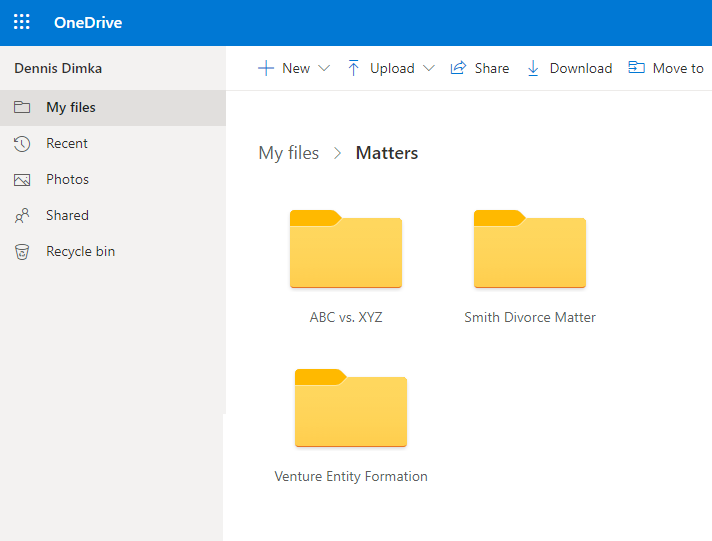
STAND-OUT FEATURES
- Tight Integration with Microsoft Office
- Streamlined, Intuitive Interface
- Built into Windows 10 / Windows 11
PRICING
- Included in Office 365 Business Standard Plan and Above
- Additional 1TB Storage: + $5 / User / Month
- Upgrade to Unlimited Storage: + $10 / User / Month

LexWorkplace
Company: Uptime Legal
Class: Cloud-based Document Management
Overview
LexWorkplace is both business-class cloud storage and a legal-centric document management system (DMS) that works with Windows and Mac. LexWorkplace will keep your documents, email and notes organized by matter, indexed and searchable. LexWorkplace includes document versioning, powerful search, integrated OCR, scan and fax integration, Microsoft Office and Outlook integration and document tagging/profiling.
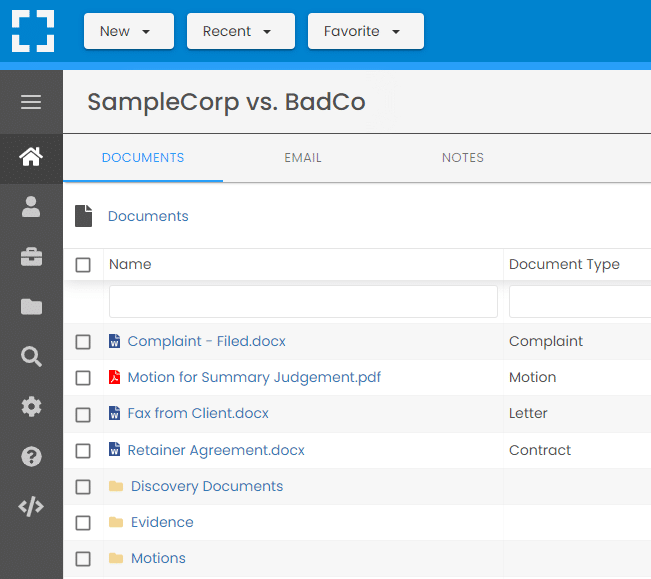
STAND-OUT FEATURES
- Complete Windows and Mac OS Support
- Client/Matter-Centric Organization
- Full-Text Search Across all Documents & Email
- One-Click Open, One-Click Save
- Document Version Management
- Email Management (Save Emails to a Matter from Outlook)
- Document Profiling & Tagging
PRICING
- Base Package: $395 / Month
- Includes 3 Users, 1TB Storage
- Additional User: + $45 / Month
- Additional 100 GB Storage: + $40 / Month
Google Drive
Company: Google
Class: Basic Cloud Storage
Overview
Google Drive, part of Google’s G Suite of productivity apps, is a popular cloud storage and file backup service. Google Drive is part of the Google Ecosystem which means its easily accessible from your Android phone and integrates with other services such as Google Docs and Google Photos. Google Drive is easy to get started with and is low-cost. However, Google Drive lacks the sophisticated law firm cloud storage features needed by most law offices. It’s simplicity may be its biggest drawback for law firms, but perhaps a viable option if your firm is already using Gmail/G Suite.
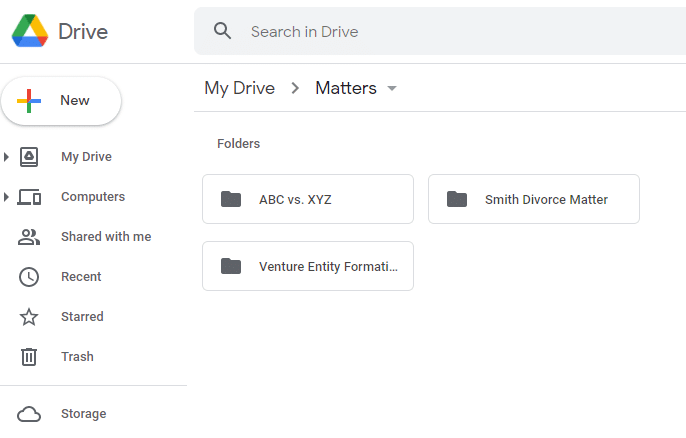
STAND-OUT FEATURES
- Integrated Google Docs for Web-based Document Editing
- Part of Google Workspace, Available for Individuals or Teams
- Lowest-Cost Option
PRICING
- 200 GB: $2.99 / Month
- 2 TB: $9.99 / Month
- 10 TB: $49.99 / Month
- 20 TB: $99.99 / Month
Dropbox
Company: Dropbox, Inc.
Class: Basic Cloud Storage
Overview
Dropbox was the first, and is possibly the most well-known basic cloud storage solution. It provides easy-to-use cloud storage for individuals or teams (organizations). Dropbox, like its counterparts, includes a web app (to store and open documents from a web browser) as well as a client for Windows, Mac, IOS and Android. Dropbox can sync your file system across multiple devices. This is handy for personal use, such as keeping your desktop and laptop in sync. However, when an entire organization’s file system is synced across many computers, conflicts and files becoming out-of-sync can be a common problem.
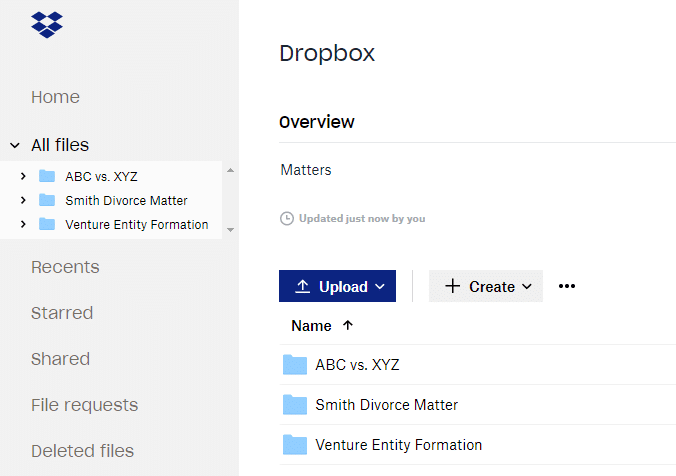
STAND-OUT FEATURES
- Turn Folders into ‘Spaces’ – With Descriptions and Notes
- Long-Running, Mature Cloud Storage Product
- Starter Plan is Free
PRICING
- Basic – Free
- Professional – $16.58 / Month (1 User)
- Standard – $37.59 / Month (3 Users)
- Advanced – $60.00 / Month (3 Users)

ShareFile
Company: Citrix
Class: Basic Cloud Storage
Overview
ShareFile, by Citrix, works to set itself apart as the business-class edition of an otherwise consumer-focused world of cloud storage. To its credit, ShareFile boasts enhanced security, options for compliance and enhanced workflow tools that allows users to create repeatable process for documents. ShareFile also serves as an easy but secure way to share files with outside parties. ShareFile is not, however, a full-fledged Document Management System and as a result lacks much of the nuanced functionality required by many law firms.
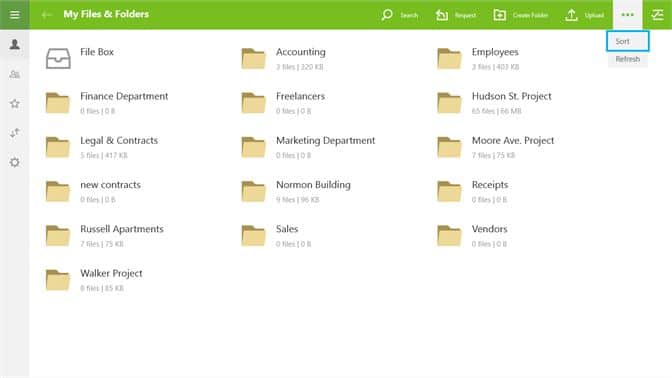
STAND-OUT FEATURES
- Additional Emphasis on Security Features
- Granular and Flexible User/Group Permissions
- Virtual Data Room Option
PRICING
- Standard – $50 / Month
- Advanced – $77 / Month
- Premium – $122 / Month
- Virtual Data Room – $338 / Month

Box
Company: Box, Inc.
Class: Basic Cloud Storage
Overview
Box is similar to its counterparts but also attempts to be the more business-class focused cloud storage service. Box describes its product as a platform where users can secure, share and edit documents and integrate with other cloud apps. Add-ons include a note-taking app, management tools for IT administrators and more. Like the others in this list, Box may work for a generic business but unfortunately lacks much of the legal-focused functionality required by law firms such as built-in OCR and matter-centricity.
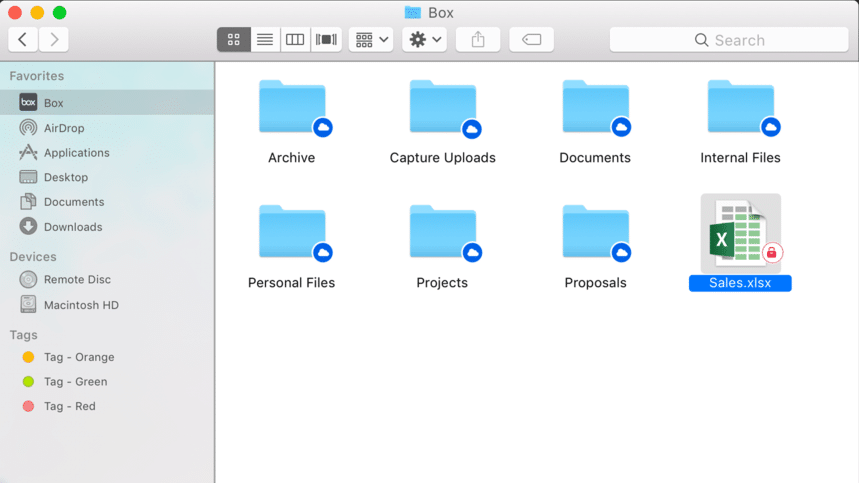
STAND-OUT FEATURES
- Share Files With Outside Users
- Create Document Workflows
- Many Integrations with Other Application
PRICING
- Business: $15 / User / Month
- Business Plus: $25 / User / Month
- Enterprise: $35 / User / Month
Challenges With Cloud Storage in Law Firm
Cloud storage is secure, cost-effective and easy to implement. Even so, they come with challenges and drawbacks for firms larger than three or so people. Consider these limitations and drawbacks when evaluating cloud storage for your firm.
Document Management Systems for Law Firms
That concludes our list of the top Law Firm Cloud Storage platforms. If your firm is considering new cloud-based file storage options, we recommend carefully evaluating your firm's objectives and needs.
You may also find that you need a little more than basic cloud files and folders. Consider the advantages of a true Document Management System (DMS) for your law firm as well.
The right legal document management software can be as simple to use as basic cloud storage, but with additional tools and capabilities to manage documents (and email).
Frequently Asked Questions - Best Cloud Storage for Law Firms
Cloud storage offers numerous benefits for law firms, such as:
- Access to client, matter, and firm documents from anywhere.
- Access to documents without the burden of clunky VPN connections.
- Enhanced data security and compliance measures.
- Simplicity and ease-of-use, encouraging adoption across the entire firm.
Basic cloud storage provides simple, lightweight storage for a law firm’s documents and data, offering easy-to-use folder structures and file organization.
Examples include Microsoft OneDrive, Google Drive, Dropbox, and Box.com. Document management software (DMS), on the other hand, is a more comprehensive, robust system that not only stores documents in the cloud but also provides a feature-rich environment for managing those documents.
Features may include full-text search, document tagging, version management, and integrated email management.
Basic cloud storage platforms can be a good fit for smaller teams (law firms of up to 5 people). However, they may face challenges such as:
- Limited DMS features.
- Limited search capabilities.
- Common sync problems leading to inconsistencies in data from one person’s computer to another.
- No email management.
Law firms should consider their specific needs and requirements, such as:
- Web-based access to documents.
- Windows and Mac OS support.
- Organizing with folders/subfolders and by client/matter.
- Full-text search (documents & email).
- Microsoft Office integration.
- Complete data encryption and multi-factor authentication.
- Geographic data redundancy.
- Document version management and tagging.
- Permissions and access controls.
- Integrated email management.
Data security and compliance are essential for law firms because they store sensitive information and may hold data subject to regulations such as HIPAA, Sarbanes Oxley, or PCI Compliance.
A cloud storage service should have specific security measures in place, such as data encryption in-transit and at-rest, multi-factor authentication, and geographic data redundancy.
Looking for Document Management Software?
LexWorkplace:
Modern Document Management for Law Firms
LexWorkplace is document & email management software, born in the cloud and built for law firms. Here’s a quick primer on how it works.
Organize by Client & Matter
Organize documents, email and notes by client or matter. Store and manage all data for a case or project in one place.
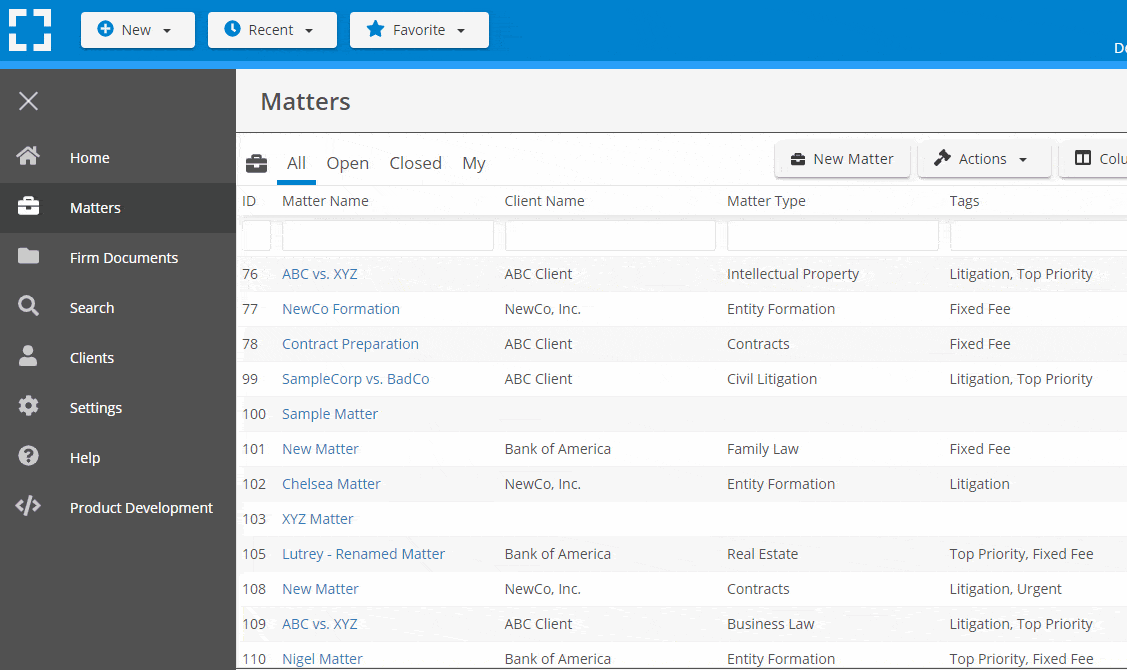
Go Beyond Basic Files & Folders
Supercharge your firm’s productivity with true DMS functions.
- Version Management
- Document Tagging & Profiling
- Document Check-Out / Check-In
- Microsoft Office Integration
- Automatic, Integrated OCR
- Convert Word Docs to PDF
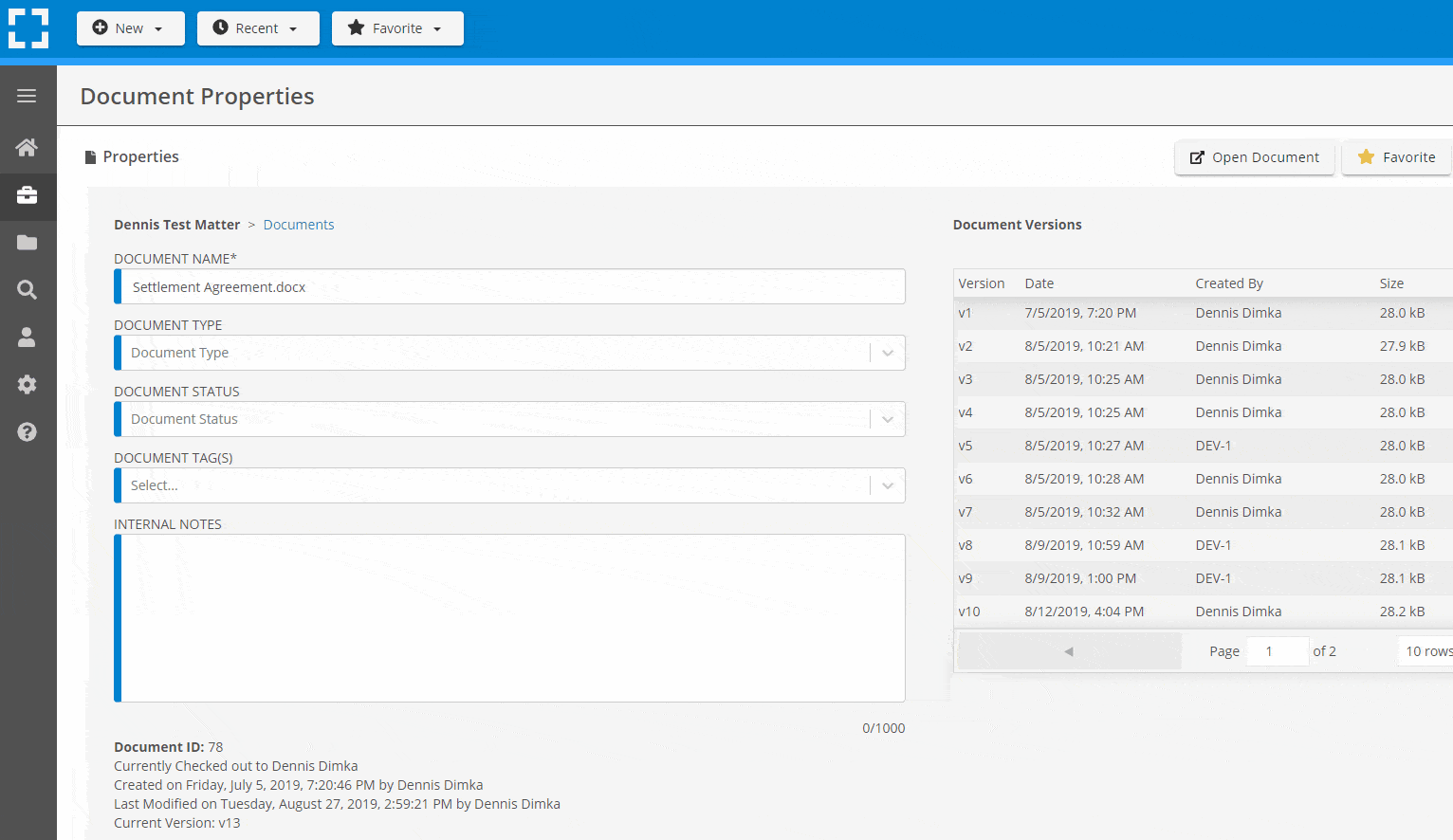
Search Everything
LexWorkplace is like Google for your law firm. Search across millions of pages, documents, folder email and notes in seconds. Refine your search by matter, document type, author and more.
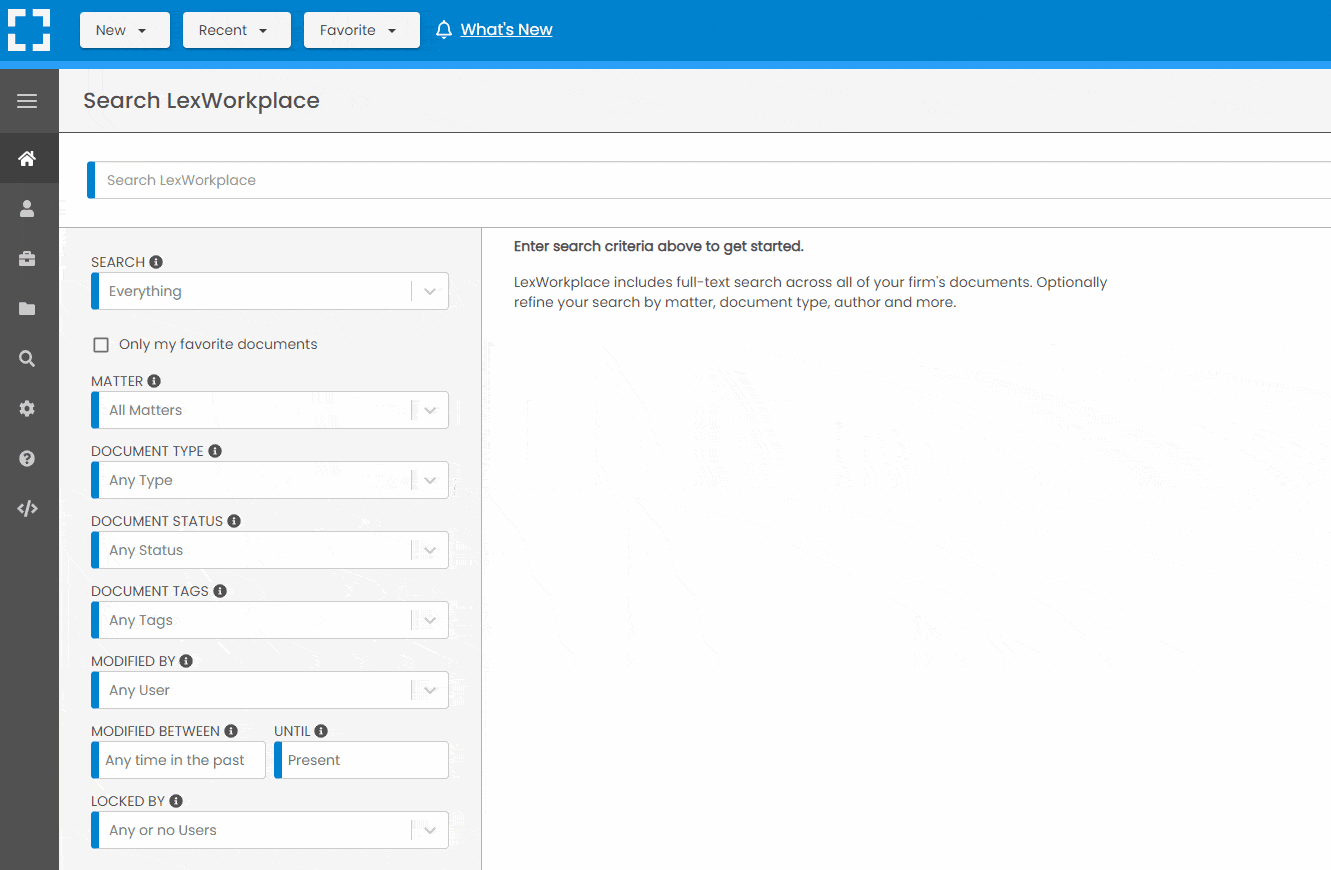
Search by…
- Client or Matter
- Document Type (Contract, Complaint, Order, etc.)
- Document Status (Draft, Final, etc.)
- Document Tags (Filed With Court, Fully Executed, etc.)
Outlook Integration + Comprehensive Email Management
Save emails to a matter without leaving Outlook. Saved emails are accessible to your entire team, organized and searchable.
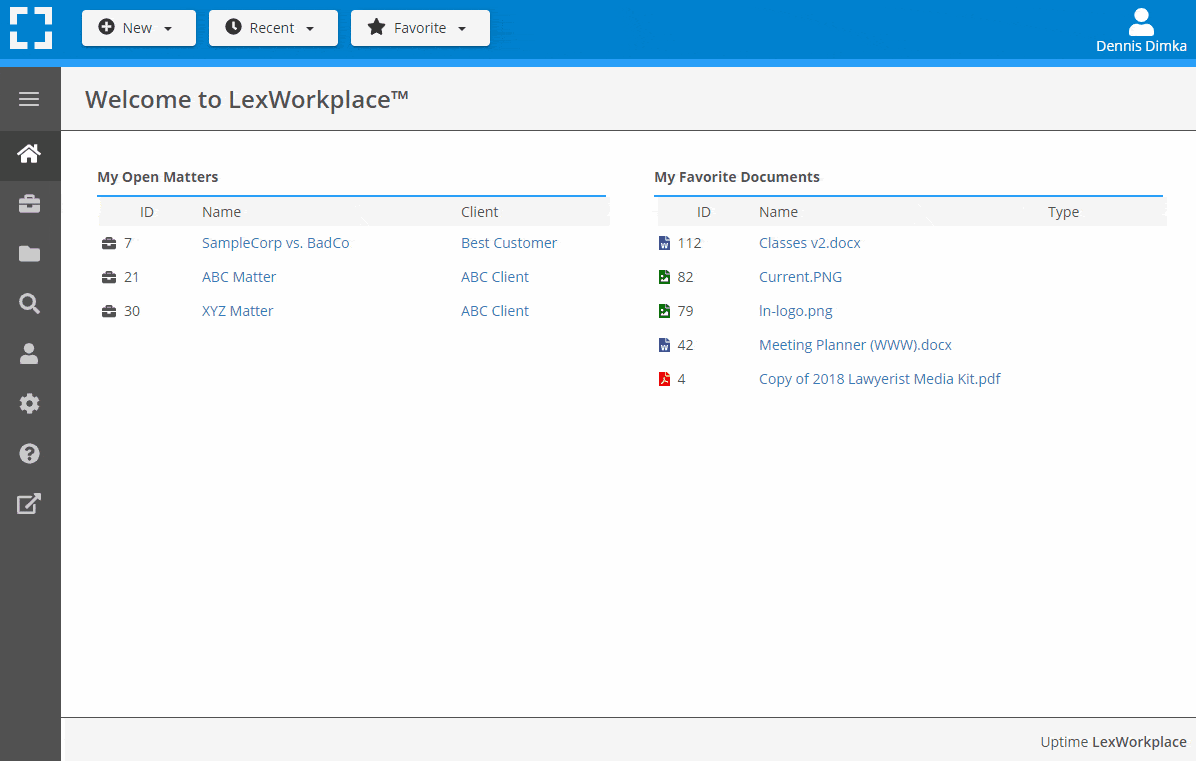
- Outlook Add-In that Works With Windows and Macs
- Save Entire, Original Email to a Matter in a LexWorkplace
- Email De-Duplication
- Organize Emails into Folders, Subfolders
Works with Windows and Macs
All of LexWorkplace is compatible with both Windows and Mac computers.
What Clients Say
Lawyers love LexWorkplace. See how the system streamlined one lawyer’s practice.
Watch the 5-Minute Demo
See LexWorkplace in action in our quick 5-minute overview and demonstration.
Or, if you want a one-on-one demo, or want to talk about LexWorkplace for your firm, schedule a call or demo below.
You Might Also Like
Want More Legal Technology Tips?
Subscribe to Uptime Legal to get the latest legal tech tips and trends, delivered to your inbox weekly.



